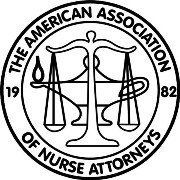Licensing Board Cases: Common Mistakes
When someone files a complaint against you with your professional licensing board, you have the right to legal representation. Unfortunately, some healthcare providers believe they can handle their own case, and often make critical mistakes in their case.
Below are some of the common misconceptions and mistakes healthcare providers make when handling their own board case.
Board Cases:Common Misconceptions and Mistakes
Healthcare providers who handle their own board cases without an attorney often make mistakes that jeopardize their license. Many of those mistakes arise from misconceptions that providers have about the Board and its investigation process.
Here are the most common misconceptions healthcare providers have about Board cases:
"If I just tell the Board investigator what really happened, my case will go away." Unfortunately, Board cases do not simply "go away" because you tell the investigator your side of the story, even if it's true.
Many licensees do not realize that Boards are aggressive and refer cases to the Office of the Attorney General for administrative prosecution. The investigation process is used by the Board to gather evidence for the prosecutor to use against the licensee.
Remember that the person who filed the complaint against you, and other people as well, will tell their side of the story to the investigator, and their stories will almost certainly be the opposite of what you say happened.
The Board's role during an investigation is
not to believe your side of the story, or to advocate for you, or to defend you, or to find some way to dismiss your case. That your defense lawyer's job.
The Board's primary role in an investigation is to protect the public, and it does that by referring cases to the Office of the Attorney General for prosecution.
"There is no patient harm, so my case will be dismissed." This seems logical, but isn't true. Healthcare providers can violate their Practice Act and have their licenses revoked even when no one is harmed, and even when the case has nothing to do with patient care.
"I'm an excellent healthcare provider. Once the Board realizes that, they will dismiss my case."
Unfortunately, the Board can revoke your license regardless of how long you've been practicing, or how great a practitioner you've been.
What is at issue in a Board case is something that you did, or failed to do, not your experience or reputation as a healthcare provider. Excellent, experienced providers can violate their Practice Act and be disciplined the same as less experienced or poor-performing providers.
"I can write the written response letter myself." This misconception can result in tragic consequences for your case!
If you are under investigation by the Board, you will receive a letter indicating that an investigation has been opened. The letter invites you to submit a written response to the complaint/allegations against you.
Licensees often believe that they can simply write down what happened, submit it to the investigator, and their case will go away. In reality, the written response will be used as evidence against you, even if it accurately reflects your side of the story, and even if what you wrote is true.
Healthcare providers who are not trained in law often make subtle statements in their response letters that are construed as admissions of guilt.
Remember that your letter will be used by a prosecutor as evidence against you, and the prosecutor is a lawyer who is trained and very skilled at "spinning" what you say. Get a defense attorney with experience in drafting response letters and protect your license!
"I can talk with the Board investigator without an attorney." Do you know that the Board investigator will put you under oath and record everything you say when you meet? Why? To gather tape-recorded evidence for the prosecutor to use against you.
A defense attorney can prepare you to talk with the investigator, and be with you during the interview. That way you know what questions you will be asked, and you can learn how to talk to the investigator in a way that protects your license.
Getting a lawyer does not make you look guilty. The Board encourages licensees to obtain legal representation. And, those who hire attorneys often have much better outcomes!

Cory Silkman, Esq.
Experience Matters | Lawyer & Registered Nurse
Cory Silkman is one of the most highly respected and sought after attorneys representing healthcare providers before their professional licensing boards. He is recognized by the National Association of Distinguished Counsel.
As both a healthcare provider and attorney, he is known for his relentless advocacy and legal skill, and has a proven track record of success in handling both simple and complex cases.
Call today to discuss your case.
Convenient locations in Towson, Fulton, Rockville, and Annapolis.

Cory Silkman is a Fellow of The American Association of Nurse Attorneys and handles all licensing board cases



